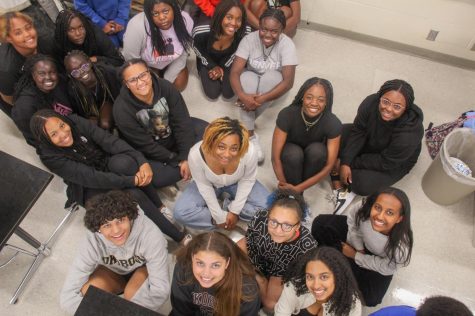Red, White, and Biden
A look at the Biden-Harris administrations’ policies
After four years of “Making America Great Again”, a new America is on the horizon, one “For All Americans”. With more than 7 million votes favoring then-President-Elect Joseph R. Biden of Delaware over sitting President Donald J. Trump of Florida, the Biden-Harris coalition gained control of the White House.
With a shift in partisan leadership, there are significant changes that are coming with the new administration.
For the first time in a decade, Democrats are controlling both chambers of Congress, along with the White House. With this, Democrats have two years with the upper hand in making legislative changes.
Biden has made it known that his top priorities are going to be reversing policies made by the Trump-Pence administration, while also implementing policies of his own. According to his court, Biden had already reversed 20 of Trump’s policies and reimplemented two of Obama’s by Thursday, Jan 21.
Within hours of his inauguration, Biden had already rejoined the Paris Climate Agreement, a global climate change treaty that was abandoned by former President Trump in June of 2017.
As the COVID-19 pandemic rages, the Biden-Harris administration plans to devote more attention and money to the pandemic than their predecessors, with federal mask mandates and a $1.9 trillion relief package.
Moreover, Biden has stated he is planning to roll out 100 million vaccines in his first 100 days, and he plans to give$130 billion to K-8 schools to reopen.
In terms of immigration, Biden has already reversed Trump’s “Muslim” Ban, restricting over 42,000 people from Muslim majority countries since 2017, according to TIME magazine.
The Biden-Harris administration has also proposed an eight-year citizenship plan for the estimated 11 million people without citizenship living in the United States. This plan provides the fastest pathway to citizenship for those without legal status.
While Biden is making significant changes executively, there are some actions that he will be reliant on Congress for. Even with Democratic control of both houses of congress, the pace of changes will likely be slowed due to an impending impeachment trial.
Mitch McConnell, Senate minority leader, still has tight control over the Republican Party, though Congress is being run by Charles Schumer of New York. Because of the 50-50 divide in the Senate, the minority and majority leaders will have to work closely together to ensure change.
“There’s no guarantee that Chuck Schumer will get anything done if he doesn’t get the cooperation of Mitch McConnell,” Democrat Tom Daschle said to the Los Angeles Times.
Cooperation has been a key part of Biden’s campaign and administration, frequently asking for bipartisan collaboration.
“We hope, and frankly we expect, Republicans in Congress – and Democrats too – will support assistance that will bring relief to the people they represent,” White House Press Secretary Jen Psaki said to Bloomberg News.
Biden has chosen an array of issues to tackle in his first 100 days. Islamophobia, a pandemic, and our burning planet. But he plans on conquering these issues with all Americans, mirroring the slogan of unity he won the election with.
“Politics need not be a raging fire destroying everything in its path,” Biden said. “Every disagreement doesn’t have to be a cause for total war”.








